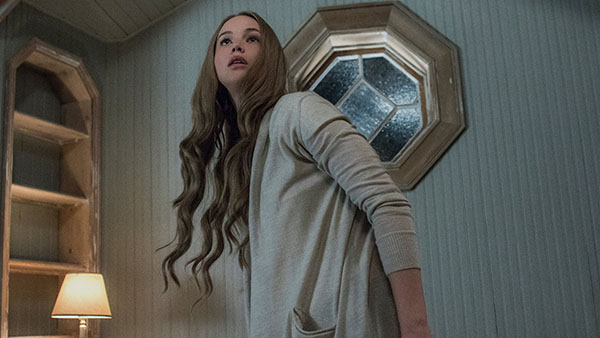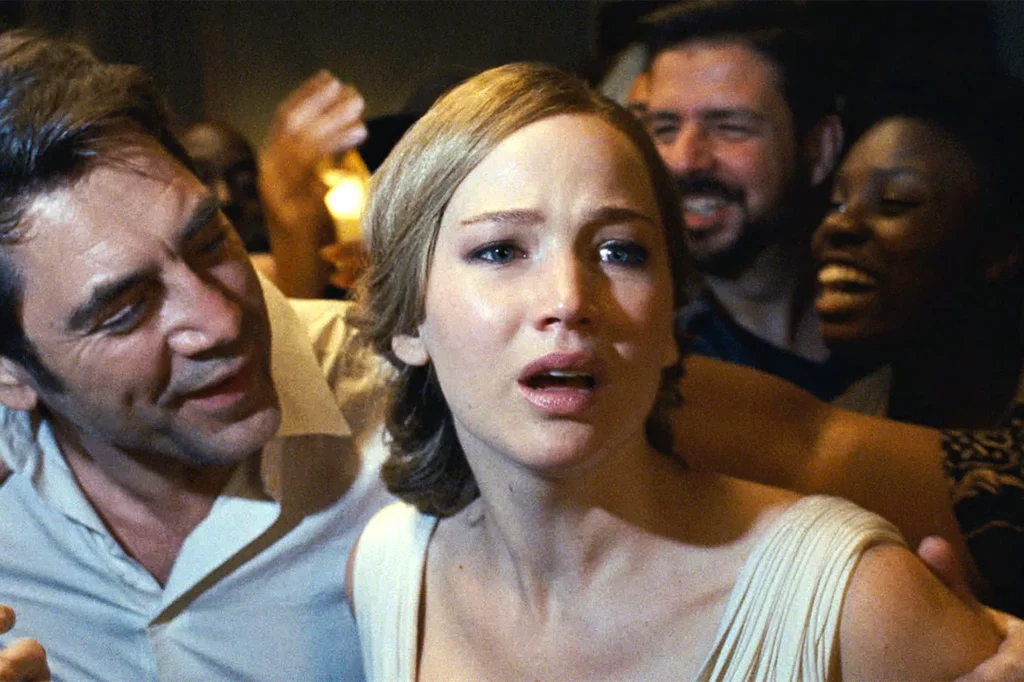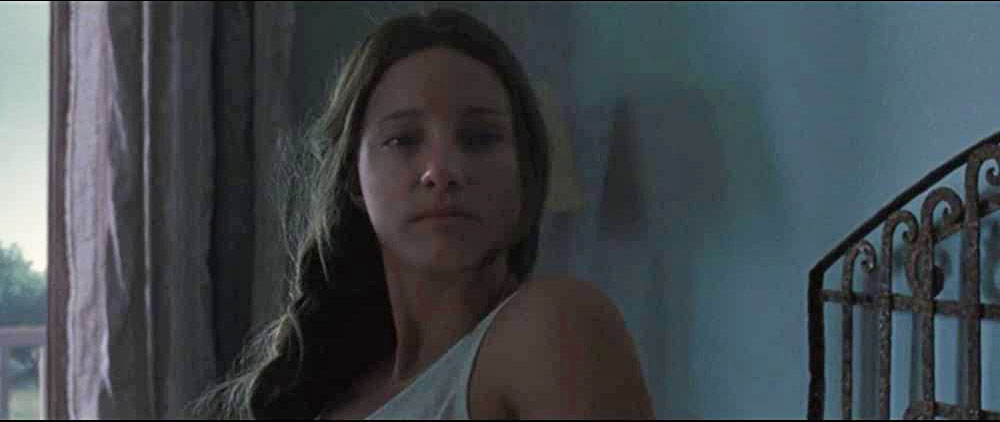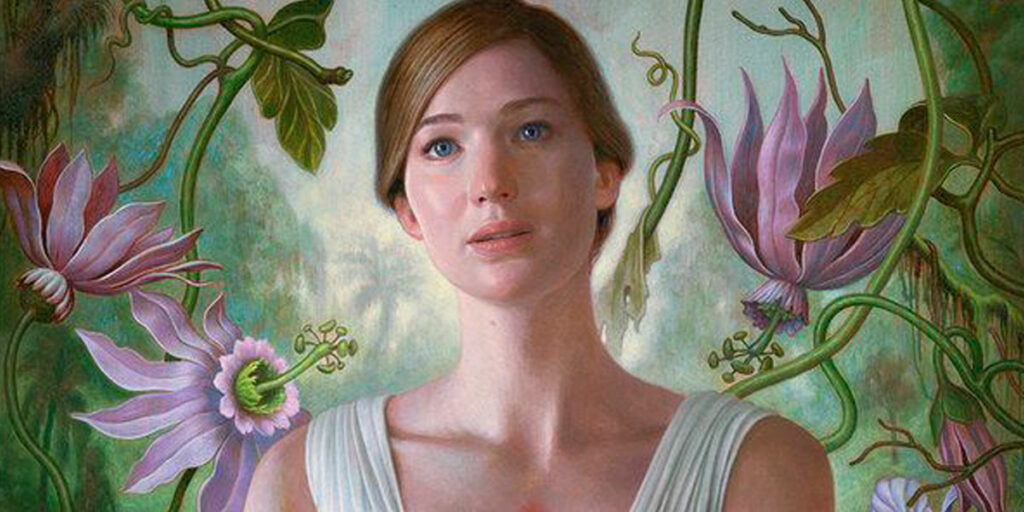The Hidden Meaning of the Movie Mother! by Darren Aronofsky: Interpretations of the Plot and Unobvious References.
Virtually all of Darren Aronofsky’s work is filled with symbolism and implies multiple interpretations. His 2017 film Mother! is no exception, as the apparently linear story of a poet and his wife and muse soon turns into a much more complex and, at times, disturbing psychological horror when the arrival of a family interrupts their routine. The woman begins to have visions which soon turn into a nightmare when more strangers arrive, and this eventually culminates in a highly symbolic, controversial scene that still remains open to interpretation to this day.
Aronofsky’s film is a chamber story, but it covers a lot of urgent and eternal themes. Critics and viewers have found hidden meaning in the movie and conjured up many versions of the story, some confirmed by Aronofsky himself. But that does not prevent everyone from determining the meaning of the film and its finale for themselves.
What Happens in Mother!

The picture begins with the “cleansing” of a burnt-out house. Someone’s hand puts a crystal on the shelf, after which the main character wakes up. The entire action of the film takes place in a house standing somewhere in the middle of nowhere. In it live two characters who are known to the audience as Mother (Jennifer Lawrence) and Him (Javier Bardem).
The man is a famous poet suffering from a creative crisis and trying to write a new book. His main asset and source of inspiration, as well as his wife, is a crystal standing in his study. His wife, Mother , watches over the house, makes repairs and creates her world in it, in the likeness of paradise or an ideal natural system. It’s a highly symbolic process for her, and it almost feels like the house itself is alive, as Mother constantly listens for heartbeats in the walls of and finds bleeding holes in the floor.
One day, a stranger comes to their house, who appears to be an admirer of the poet’s work who wished to meet him. The stranger, whom we know as Man (Ed Harris), is allowed to stay, despite Mother’s objections, but the guest is soon followed first by his wife, Woman (Michelle Pfeiffer), and then by their children. Mother keeps asking the guests to leave, but the children put up a fight over Man’s will, and one brother ends up killing the other, making the situation more complicated. Next, more and more uninvited guests accumulate in the house at the wake, leading to flooding as more anger builds up within Mother since her husband seems to care more about them than he does about her.
A few months later, Mother is preparing for the birth of her child, and the poet has finished his new work. Soon, a mob of his fans bursts into the house, smashing everything in their path at the exact same time in which Mother goes into labor. But the baby is soon dragged away by a crowd of delirious fans, who pass it from hand to hand as a religious symbol, but then begin to eat him, in the most controversial scene of the film, which eventually leads to his death. The enraged Mother blows up the house, and the poet takes her charred body to his study and extracts a crystal from the woman’s heart, bringing the action back to the very beginning.
What Lies at the Heart of the Plot
Man’s Destruction of the Planet
One of the most obvious explanations for the film’s plot is mankind’s gross attitude toward nature. In this interpretation, the hidden meaning of the movie is that home is the Earth, and Mother is the same “Mother Nature” who herself restores the flora on the planet (makes repairs to the house) and gives new life (gives birth to a child).
People come politely at first, but they immediately break the rules – the first guest smokes indoors, and then come others who disregard her instructions by sitting on her furniture and making a mess. But then they begin to behave more and more insolently, first using the house as a toilet, and then breaking everything that nature created.
She also “answers” them, just like nature, with various cataclysms, such as floods and fires. And after the destruction brought upon by these uninvited guests, who also get destroyed in the process, nature itself restores the house and returns to the beginning of the story, which is also symbolic of the cycle of life.
This version was confirmed by Darren Aronofsky himself at the press conference at the Venice Film Festival, where the film premiered, . If you look at the film’s poster, where Mother is surrounded by nature, you can see that it hints at this meaning as well. According to the director, people treat the Earth with no respect, rob and rape it, and this is what Aronofsky tried to show in the film.

A Cruel God and Biblical Themes
In an same interview, the director said that Javier Bardem played God in this film, and in his cruelest form as he appeared in the Old Testament: he’s selfish, and he demands to be worshipped. God creates a home, after which Mother (nature) takes care of it.
In fact, there are many obvious biblical references in the story. The first people who come to visit the main characters, whose names aren’t mentioned either, are Adam and Eve, and this . is why the man appears before the woman. He also has a scar on his back, as if from an extracted rib.
Following this interpretation, their children are Cain and Abel; one brother kills the other because they disagree with the decisions their father made in his will, just like Cain and Abel disagreed upon God’s instructions to them. What’s interesting is that the characters in the film are played by their real brothers, Domhnall and Brian Gleeson .
The flooding of the house after the first invasion of the guests is analogous to the Flood of the World. Then the Mother (the Virgin) gives birth to a child, in which there is an obvious allusion to Jesus, as the fanatics kill him and eat his flesh, whose hidden meaning could be symbolic both of Jesus’ crucifixion and of how his “body” is eaten by religious people during the mass, in the form of a hostia. The finale seems to suggest an apocalypse that will destroy all men if they continue to behave in this way, which also has religious undertones.
A Muse Giving Herself Over to the Creator
Bardem’s character can be considered a creator not only in the divine sense but also in the purely poetic sense. He creates works, and Mother serves as his muse. While he is trying to write something, she deals with the mundane tasks of cooking and repairing the house. And yet it’s her responsibility to inspire the poet to create again.
When he becomes popular again, he basks in his fame and fans, even forgetting to cook dinner and acknowledge his wife’s presence, and Mother has to deal with the consequences and put the house back in order after the invasion of his fans. But the main thing happens in the finale, when it turns out that the crystal, which the poet was so protective of, is in fact the heart of his muse, so it all comes back to Mother in the end.
Mother also gives herself completely to him, so that he can continue to create. Following this interpretation, the final shots, which repeat the introduction but with a different actress, show that the poet immediately has a new muse.
Toxic Relationships in the Family and Society
Coming down from creativity and religion to human daily life, Mother! also reveals many important themes. First, the idea of patriarchy. The mother is always in the shadow of her husband. He does not ask for her opinion when he invites guests into the house, and she constantly acts as a maid. He doesn’t even realize that she is not happy with these dynamics, and yet she continues to do what he wants her to do, as she has gotten accustomed to it.
Secondly, there are several hints of fear of motherhood in the film. The woman who arrives shamelessly hints that it’s time for Mother to have her baby, acting here as a pressuring society with the traditional “the clock is ticking.”
If we take the house as analogous to the heroine’s body, the changes taking place in it can be considered a reflection of the fear of changes in the body during pregnancy – the bleeding hole in the floor, the heartbeat that the Mother hears in the walls, the flood and the child’s subsequent death hint at this quite clearly.
Thirdly, even if not specifically about family relationships, there are hints of society’s intrusion into the introvert’s life in Mother!. He acts as a bright extrovert: he invites guests into the house and cannot understand why Mother, who’s more introverted, does not like it. For her, the presence of outsiders in the house and in her personal life and their behavior is completely unacceptable. But society begins to dictate its rules, which leads to disaster.
How Mother! Ends

The finale of the picture completely repeats the introduction. At the very beginning of the film, He puts a crystal on the shelf, after which the burned-out house is cleared, and Mother wakes up in her bed. After all the events of the film, exactly the same thing happens at the end.
Only, this time, another Mother (played by Laurence Leboeuf) wakes up in her bed. In different interpretations this could mean one of three things: the next turn of nature after its destruction by man, the new creation of the world by God, or another muse for the creator.Either way, the plot is cyclical and hints that next action will be completely repeated and the house will be destroyed again.
Despite the opinion of the author himself and the many already known interpretations, the film Mother! allows for many other meanings, even more than what we explored here. In a way, the film can be partly considered a psychological test, where everyone will see something of their own, which is either the closest it can get to their own realities or, on the contrary, the scariest scenario they can envisage. This is the real beauty of Darren Aronofsky’s Mother!: it’s one of those rare films that keeps on giving, showing you new meaning and new dynamics with every watch that will affect you differently depending on your own experiences.

